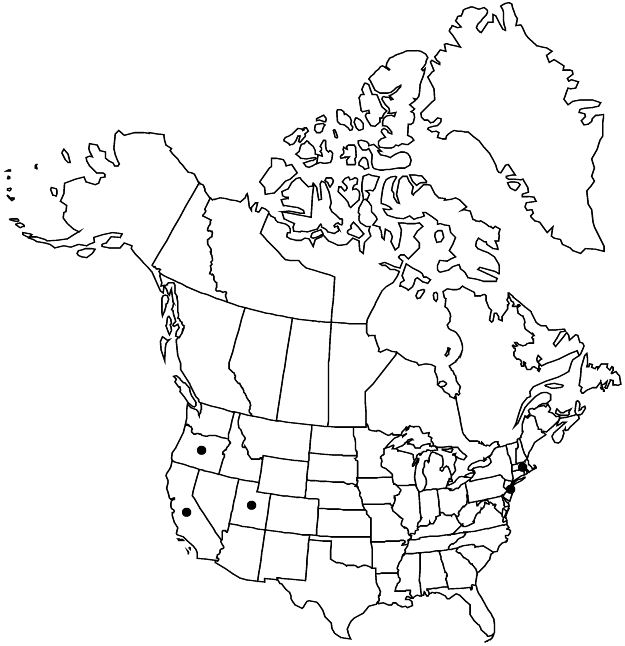Difference between revisions of "Frankenia pulverulenta"
Sp. Pl. 1: 332. 1753.
FNA>Volume Importer |
FNA>Volume Importer |
(No difference)
| |
Revision as of 20:17, 24 September 2019
Herbs, annual, often prostrate, to 1.5(–3) dm; branches glabrous or puberulous, hairs erect, usually curved, sometimes straight. Leaves: petiole 0.8–2 mm, markedly tapering toward blade, apex narrower than base of blade; blade gray-green, usually narrowly obovate or obovate to elliptic or oblong-elliptic, sometimes orbiculate, flat, 2–7 × 1–3 mm, margins slightly to loosely revolute, abaxial surface mostly exposed, adaxial surface usually glabrous, sometimes glabrate. Inflorescences usually compound, sometimes simple dichasia, sometimes solitary flowers. Flowers: calyx 2.5–4.5 mm, lobes 5, 0.5–1 mm; petals 5, pink to violet, oblong-oblanceolate to spatulate, 2.5–5.2 mm; stamens 6, included to ± exserted, 1.7–3.5 mm; anthers yellow; style included to ± exserted, 3-branched; ovary 3-carpellate; ovules 25–60, attached along sutures, funiculi erect. Seeds 20–60 per capsule, oblong-ellipsoid, 0.4–0.7 mm. 2n = 20.
Phenology: Flowering May–Sep.
Habitat: Ballast, moist, saline soil
Elevation: 0–1300 m
Distribution

Calif., Mass., N.J., Oreg., Utah, Eurasia, Africa, introduced also in South America and Australia.
Discussion
In the United States, Frankenia pulverulenta is introduced and has been rarely collected on the east and west coasts and near Salt Lake City, Utah, where recent attempts to relocate it were unsuccessful (N. H. Holmgren 2005c).
Selected References
None.